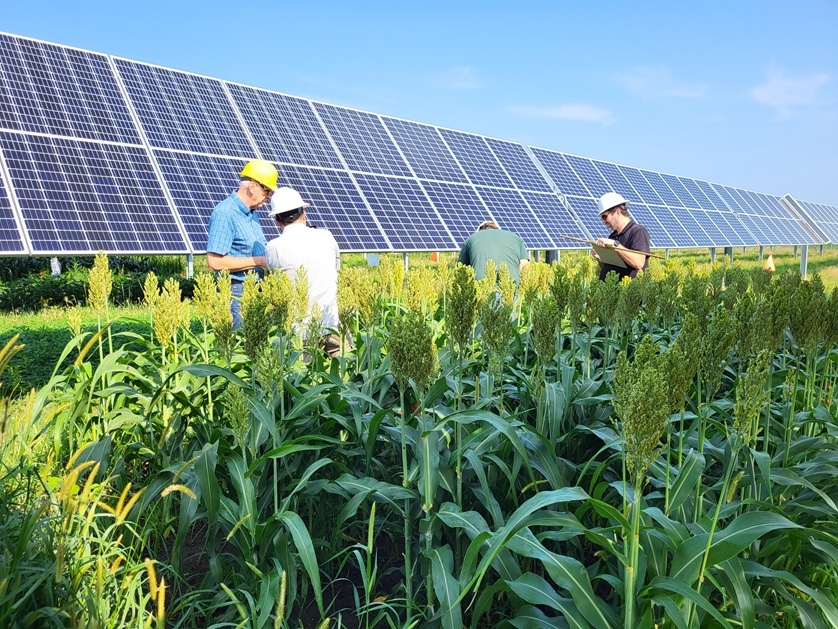cross-posted from: https://lemmy.world/post/28402969
"The Texas Senate voted 22-9 to pass Senate Bill 819. The bill places restrictions on solar and wind power projects, requiring new permits, assessing fees, adding new regulatory requirements and placing new taxes on the projects.
The legislation “adds onerous requirements to new solar projects that would not apply to other energy sources except wind,” said the Solar Energy Industry Association (SEIA).
Texas has the nation’s largest utility-scale solar market – a $50 billion industry that has enough solar installed to power nearly 5 million homes. The bill is expected to slow development, raise Texans’ utility bills, harm rural economies, worsen grid reliability and encroach on private property rights.
“This bill will kill renewable energy in Texas,” Jeff Clark, CEO of Texas Power Alliance, said during public testimony.
Senate Bill 819 requires solar and wind projects of 10 MW or larger to obtain a permit from the Texas Utilities Commission to interconnect to the grid. It requires projects to report a notice of applications and hold a public meeting for proposed projects.
The bill also places a new environmental impact review by the Texas Parks and Wildlife Department and established an annual environmental impact fee for permit holders.
SB 819 also requires all permitted facility equipment for solar projects be at least 100 feet from property lines and 200 feet from habitable structures unless it obtains a written waiver from the property owner.
The bill also prohibits property tax abatements for solar or wind projects of 10 MW of capacity or more. Property tax abatements are a common regulatory structure for utility-scale solar projects nationwide.
“We cannot afford to turn away from the pro-energy and pro-business policies that made the Lone Star State the energy capital, but that’s exactly what SB 819 does,” said Daniel Giese, Texas director of state affairs, SEIA. “We urge the Texas House to reject this bill.”
If approved by the House and Governor, the bill is expected to raise electricity costs for Texans. Clean energy is estimated to save ratepayers in the state $11 billion over the last two years.
The restrictions are also expected to lower grid reliability. Solar is the largest source of new generation added to the grid in Texas, and experts from the state’s grid operator ERCOT, the Texas Comptroller’s office, and the Federal Reserve Bank of Dallas credit solar and storage for helping the grid remain stable during heat waves and cold snaps.
For rural economies, a slowed solar and wind power industry means less tax revenues. Research from the University of Texas estimates that existing and planned solar, wind and energy storage projects in that state will contribute $20 billion in local tax revenues and $29.5 billion in landowner payments over the life of the projects.
The bill also claws back the right of landowners in Texas to make land use decisions on their private property.
“The state telling landowners that they can’t use their land in the way they see fit is antithetical to the Texas identity,” said SEIA.
The solar industry employs over 12,000 people in Texas. It is expected to add the most solar among all states over the next 5 years, with a projected growth of 41 GW, according to SEIA. For context, the United States has about 224 GW of solar installed cumulatively in its entire history through 2024.
The bill next heads to the Texas House of Representatives for vote. If approved, it will be sent to Governor Greg Abbott for his signature."
- How much money on big energy causing this through lobbying?



That will fix their energy grid problems.
Everything is bigot in Texas.
Setting aside whether it’s a good or bad idea on its own, if the Trump administration is going to have heavy tariffs on solar panels and batteries out of China, my guess is that deploying solar right now is probably not economically viable, or at least considerably less so than it has been.
https://www.yahoo.com/news/china-dominates-solar-trump-tariffs-133600511.html
https://www.energypolicy.columbia.edu/qa-solar-tariffs-and-the-us-energy-transition/
https://www.bloomberg.com/news/articles/2025-04-09/trump-tariffs-threaten-spread-of-big-batteries-on-us-power-grid
Whether-or-not Texas adds additional barriers on top of that may not matter all that much.
Maybe for solar and battery tech, but afaik wind tech is mainly us/Europe so that might still be economicaly smart (aside from the environmental reasons they don’t seem to care about).